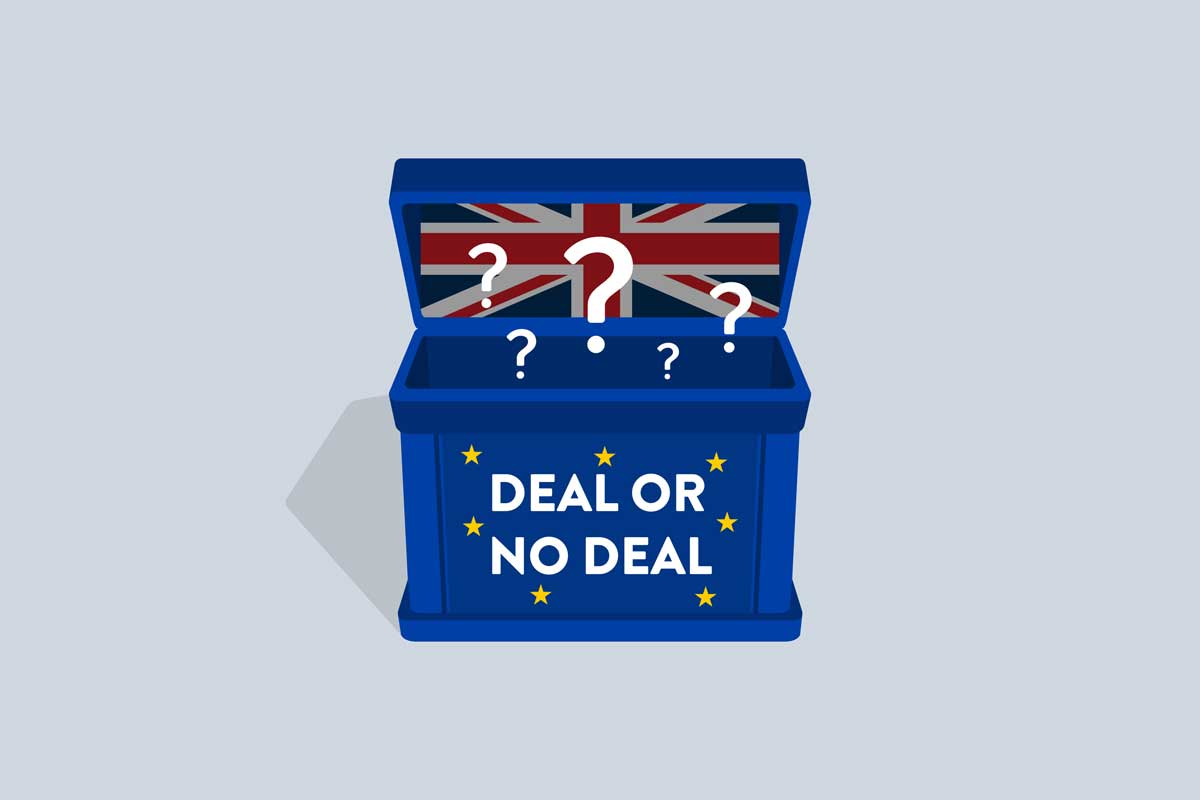Brexit is rapidly becoming more and more of a reality, with less than 100 days to go until the transition period comes to an end on 31 December 2020. But, to a large degree, Brexit hasn’t been on people’s minds quite like in recent years. Obviously, Covid-19 has been the pressing focus of the UK and EU in 2020, but with time moving on, eyes have started to fall back onto Brexit, or the no-deal Brexit.
We still have no deal with our biggest trading partner, the Good Friday Agreement is at risk, our global reputation is under threat, the economy sits on a perilous precipice, and the Dover-Calais border faces total chaos. And, unfortunately, there doesn’t appear to be a clear path forward for the time being, at least.
At Smart Directions, we know all too well just how important it is to get Brexit right for our country and economy. We’re already helping businesses prepare for a deal or no-deal Brexit, so please contact our experienced team if you require our expert assistance.
The Northern Ireland Protocol
In a stunning move earlier this month, Boris Johnson’s government moved to legislate to make changes to the Northern Ireland Protocol – part of the Withdrawal Agreement with the EU. Less than a year ago, Johnson fought his election on the premise that he had an “oven-ready” deal ready for the British public. Now it seems he is ready to break international law over the very deal he signed and ruin the reputation of Britain in the process.
Under even the slightest scrutiny, the reasons the UK Government has offered for wanting to break international law fall apart like a house of cards – it’s a patent mess and one that has garnered substantial criticism for both sides of the bench as well as legal experts, with the government’s most senior lawyer, Sir Jonathan Jones, quitting his post in protest.
Margaret Thatcher famously said, “Britain does not break treaties”, so let’s hope Johnson is acting with bluster to gain an edge in negotiations rather than with intention.
However, the biggest threat from this indiscretion may be in how it affects our ability to make future deals. The EU is furious and who can really blame them – we simply won’t get a deal with them if we renege on what’s already been agreed.
But, even more worrying than our current position with the EU is how this action by the government could affect our relationship with the USA – often seen as the UK’s golden goose of trade deals in 2021 and beyond. Shortly after the news of Johnson’s plans, Nancy Pelosi, Speaker of the United States House of Representatives, said the UK will never get a trade deal with the USA if it threatens the Good Friday Agreement. This was also echoed by Democratic Presidential Nominee, Joe Biden. The seriousness of this cannot be understated, as the Democrats control the House of Representatives (with or without a Biden victory) – where any US-UK trade deal will be ratified.
Dover-Calais chaos
Since the vote to leave the EU, questions regarding the Dover-Calais border crossing being thrown into chaos post Brexit have seen endless rebuttals from the Conservatives. Now, in a yet another stunning revelation, a leaked letter penned by the Chancellor of the Duchy of Lancaster, Michael Gove, reveals that Johnson’s government fears queues of up to 7,000 lorries at the Dover-Calais border. Likely, in part, because of the estimated 400 million additional annual customs checks that will need to be carried out in the wake of a no-deal Brexit.
The no-deal Brexit economy
While it’s been accepted that there would be some economic fallout from any form of Brexit, a no-deal scenario was always assumed by most to be the worst outcome. Now, thanks to a report by UK in a Changing Europe (based on modelling by London School of Economics) these fears have been fully realised. The analysis has determined that the long-term economic hit from a no-deal Brexit will be two or three times as large as Covid-19’s impact.
But, this goes the other way too, with an unpublished report by the Halle Institute for Economic Research (seen by the Financial Times) stating there could be up to 700,000 jobs lost for EU countries in the case of a no-deal Brexit.
The Japan Trade Deal
Despite the overwhelmingly negative press that’s surrounded Brexit recently, there has been a little ray of sunshine to hold on to. Earlier this month, the UK and Japan agreed a trade agreement in principle. If ratified, this would mean “strong tariff reductions” for UK pork and beef exports with low tariffs for food and drinks, such as Stilton cheese. The deal also includes reduced tariffs for car and rail parts, among other benefits.
But realistically, without a trade deal with the EU and the Northern Ireland Protocol left intact, the UK-Japan trade deal would turn out to be a small consolation prize.
Are you concerned about a no-deal Brexit in 2021 and what that means for your business? To discuss how your business can prepare now before it’s too late, please contact us now.

